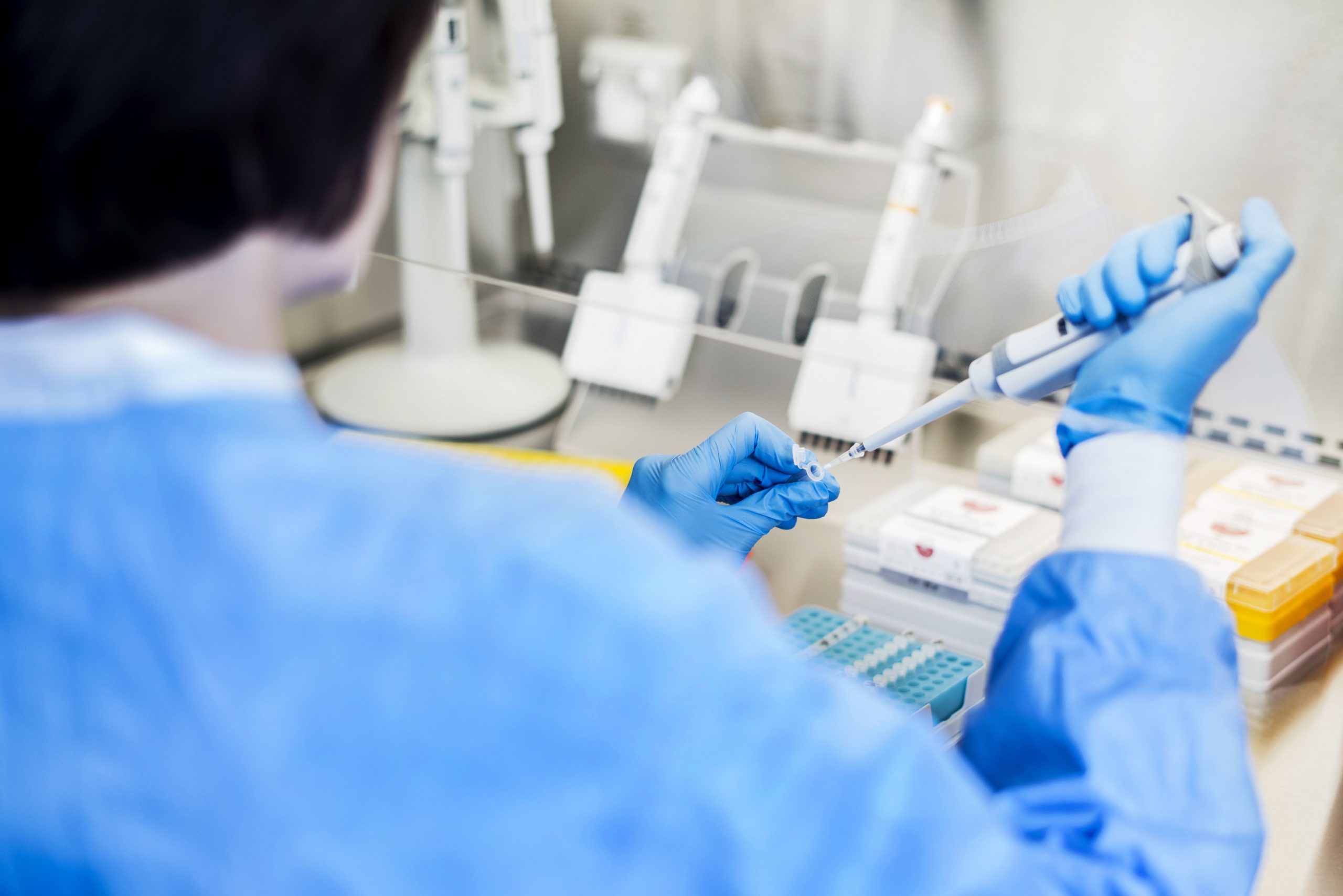We will contact you shortly to schedule a convenient appointment.
Immunophenotype test
Diagnosis of immunodeficiencies and causes of infertility
The study of peripheral blood lymphocyte subpopulations is a specialized immunological test, in which the percentage and number of individual lymphocyte populations indistinguishable in basic blood tests such as morphology or peripheral blood smear are evaluated.
The test is performed by flow cytometry using monoclonal antibodies directed against lymphocyte-specific surface proteins (CD). Based on the presence or absence of the relevant CD markers, it is possible to identify individual lymphocyte subpopulations and determine their percentage and absolute value (number of cells in a microliter of blood).

Looking for the cause of infertility?
Make an appointment for a consultation and talk about immunophenotyping
For what purpose is an immunophenotype test performed?
The study of lymphocyte subpopulations is performed mainly for the diagnosis of primary and secondary immunodeficiencies, however, it is also very helpful in determining the causes of infertility. Abnormalities in the proportions of individual lymphocyte populations in a woman can reflect abnormalities in the functioning of the immune system, which can have a negative impact on the process of conception or the developing pregnancy.
At the Gyncentrum laboratory , the study of lymphocyte subpopulations is performed using multicolor flow cytometry, in which 6 to 8 monoclonal antibodies are used simultaneously. This provides highly resolved and highly specific identification of lymphocytes.
What does the study look like?
The immunophenotype test is performed from peripheral blood drawn on EDTA anticoagulant. The test does not have to be done on an empty stomach – it can be done in the morning after a light carbohydrate meal, but not earlier than 2 hours after a meal.
Scope of the study
The study evaluates the main subpopulations of lymphocytes:
- T lymphocytes (identified by CD3 antigen)
- B lymphocytes (identified with CD19 antigen)
- NK cells (having CD3-/CD16+CD56+ immunophenotype)
The T lymphocyte population is separated into:
- T helper lymphocytes – CD4+
- Cytotoxic T lymphocytes – CD8+
- In addition, the B lymphocyte population is evaluated for CD5 antigen expression (identified by CD19+CD5+ immunophenotype)
- The presence of atypical cell populations that may be of interest to the patient is entered in the commentary
| CD3+ | This antigen is found on the surface of T lymphocytes, cells involved in the cellular immune response. T lymphocytes perform a variety of tasks. They essentially act in 2 ways – either by releasing cytokines, or soluble proteins, or by interacting on the cell-to-cell line. |
| CD3+CD4+ | These antigens are found on the surface of helper T lymphocytes. T lymphocytes interact with B lymphocytes in the formation and differentiation of antibodies. Together with phagocytes, they also participate in fighting intracellular pathogens. |
| CD3+CD8+ | These antigens are found on the surface of cytotoxic T lymphocytes. The function of these cells is to destroy body cells (host cells) that have been attacked by pathogens. The process of such destruction is referred to as cytotoxicity. |
| CD4:CD8 ratio | A study of the ratio of helper lymphocytes to cytotoxic lymphocytes. |
| CD19+ | This antigen is found on the surface of B lymphocytes and is present on them at essentially all stages of their maturation. B lymphocytes are the cells responsible for the humoral response of the immune system. They have the ability to multiply and differentiate into plasma cells and memory cells. |
| CD3-CD16+CD56+ | These antigens are found on the surface of NK cells, often referred to as “Natural Killers”(Natural Killer). NK cells can recognize surface lesions found on cancer cells and virus-infected cells. |
| CD19+CD5+ | These antigens are found on the surface of B1 lymphocytes. These lymphocytes produce antibodies against hormones, hormone receptors and neurotransmitters. They often take the form of autoimmune cells and are present in autoimmune disorders. |



